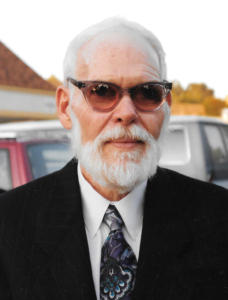1933 – 2015
Selfless and staunch client advocate, ethical role model and legal pioneer

Social work trailblazer Benny Parrish has become a historical figure of inspiration, representing client-centered commitment, unshakeable ethics, and quiet determination in speaking truth to power. This year marks the 50th anniversary of the Parrish v Civil Service Commission of the County of Alameda decision that vindicated him and set a new standard to ensure the rights of those receiving government aid or benefits, both across California and across the U.S.
Alameda’s welfare workers in the 1960s were tasked with both helping families and checking for fraud. They were instructed to conduct surprise early-morning visits to inspect clients’ bedrooms, bathrooms and closets for signs of unreported adult males in residence, the presence of whom restricted needy women receiving financial assistance. This “Operation Bed Check” targeted both fraud suspects and those under no suspicion whatsoever, but any client who did not grant entry to the social workers or permission for the search was routinely referred to the Fraud Unit for investigation. In one particular night in 1962, caseworkers in Alameda County entered 500 homes.
Parrish, who earned his MSW at UC Berkeley and trained as community organizer under Saul Alinsky, carefully weighed the ethics of Operation Bed Check and his desire to build a successful career helping those in need. He told his supervisors that he felt the “midnight raid” home visits were unfair and unconstitutional, in contrast to the county’s argument that welfare clients ceded their rights by accepting government aid. He saw the raids as an invasion of welfare recipients’ privacy, which degraded both them and him and undermined his identity as a professional social worker. When faced with dismissal if he refused to conduct the searches, he did not use his legally blind status to seek exemption from the dark-hours work, and he did not simply accede but “fail to find” any violations. Instead, he put his objections in writing, stood his ground, and was fired without compensation or eligibility for unemployment benefits. He acted on principle, despite the hardship to himself, his young family and his career.
Parrish went to court, fighting the county’s labeling of his stance as insubordinate. He lost a local case but persevered, and in 1967, he won before the State Court of Appeals. Along with upholding Parrish’s claim, that decision set important clients’-rights precedents for welfare and social work ever afterward.
During his five-year legal struggle, Parrish worked for Stanislaus County, where he continued his unwavering commitment as a forceful advocate for his clients. He was once arrested for trespassing after refusing to leave a welfare office. That afternoon, he had brought in a homeless family in crisis, and when the needed services had not been completely arranged by closing time, he refused to leave, demanding that the administrators finish helping the family. While those charges were soon dropped, again his courageous action placed his clients’ needs above the convenience of those employed to serve them.